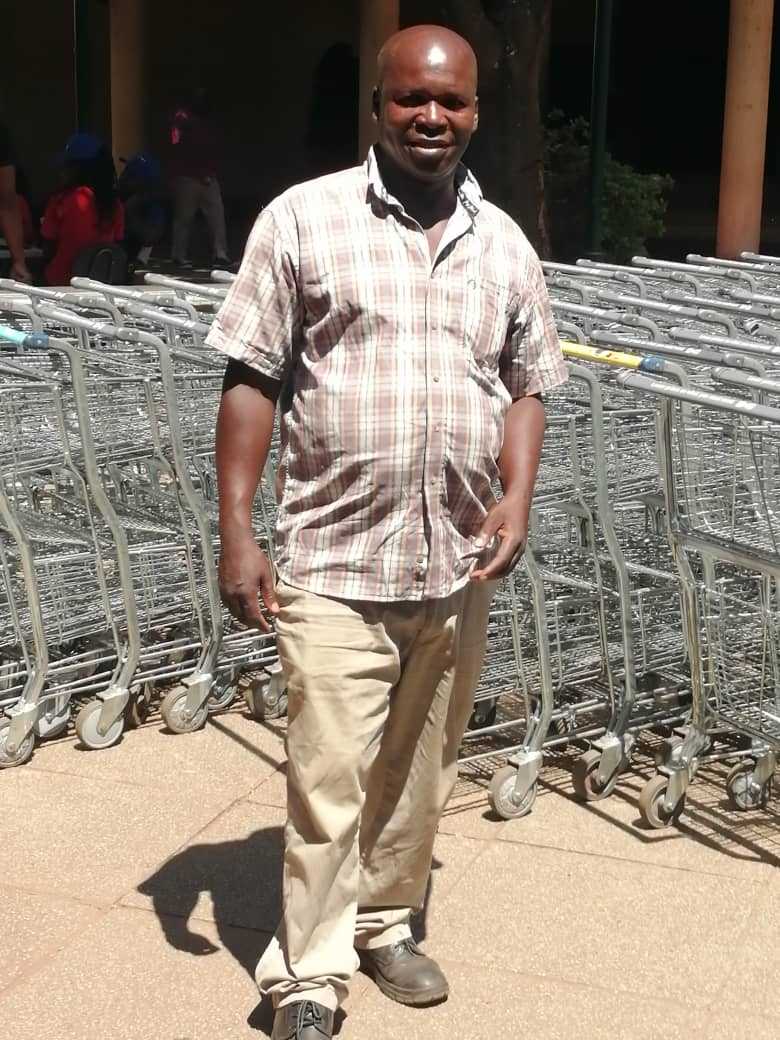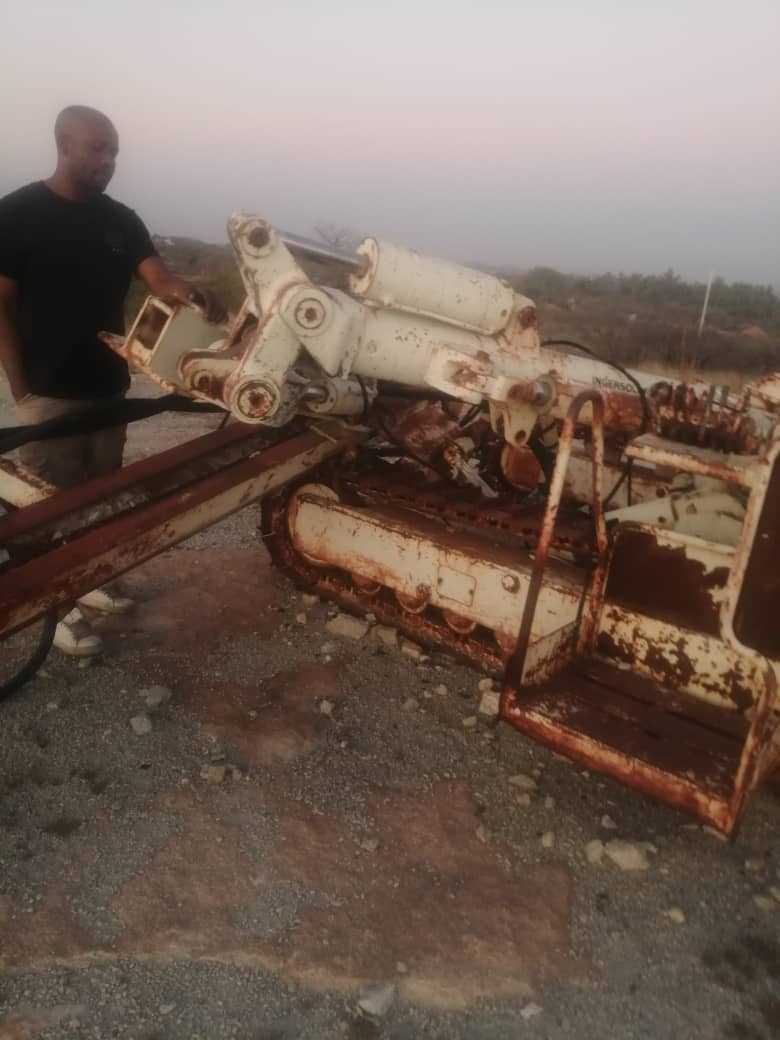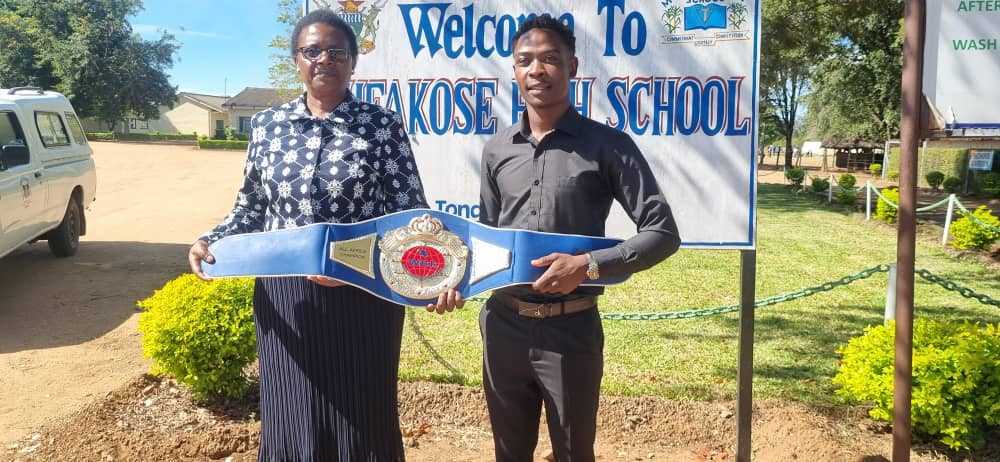
Edmore Zvinonzwa
The disorderly sounds of metal grinding against metal, a lonely hammer hitting against metal fresh from the foundry, the dry sound of passing buses and other vehicles and the occasional sight of a welding flame are consistent with Gazaland in Western Triangle, Highfield in Harare which collectively betray serious work.
This is the place that has become a second home for scrap metal dealer, Fradreck Gwenzi, whom many in his line of work and around social circles prefer o call by his totem, Mhofu. Mhofu is the Shona name for eland, a totem to which most people have attached several jokes. The ChiHeras are the females in the Mhofu totem.
Gwenzi has found a livelihood in scrap meal and believes most metal that many think has reached the end of its life – so to say – can be given yet another life, in another form, making it useful once more.
As cash-strapped local authorities across the country battle with garbage collection and waste disposal, the role played by dealers such as Gwenzi in clearing metal garbage cannot be underestimated.
Part of what is being thrown away could be reused while some of it can be recycled so that it finds another life in another form while at the same time avoiding being an eyesore as litter.
No one has ever admired junk and garbage in their backyard, whether at personal or company premises. It is even worse with metal junk, which can be harmful if stepped on.

For years, the enterprising have made collecting plastic waste with businesses and factories opening up to process recycled plastic into new usable products and these have become the major business in Harare’s Graniteside area.
Plastic waste collectors pick it up for recycling, an activity that has not only tidied the surroundings but has created employment while bringing in cheap plastic products such as dishes, buckets and bins among others.
The bulk of recycled paper has found its way in factories again in the manufacture of toilet paper as well as other paper products like newsprint, while also bringing smiles on faces of environmentalists as this has largely reduced deforestation.
Metal junk has not been as easily disposable as other waste and this has been Gwenzi’s calling.
Gwenzi did his primary school education at Mukuruva Primary School in Chivhu, Mashonaland East Province before proceeding to Harare where he completed his Ordinary Level at Zengeza 4 High School in the capital city’s populous dormitory town of Chitungwiza.
Thereafter, Gwenzi joined other youths in job searching, settling on several odd jobs for years, including as bus conductor for Paradise Coaches and Musasiwa Bus Services that were plying the Harare-Gutu-Chiredzi route, before going into scrap metal, initially with his uncles.
Starting very small, working with his uncles in Chitungwiza, Gwenzi soon weaned himself off and has never looked back ever since.
“I weaned myself off my uncles and as they say, the rest is history. I soon managed to stand on my own, scouting around industrial areas of mainly Harare and Chitungwiza for companies with scrap they wanted to do away with,” says Gwenzi.
Gwenzi has been able to send his children to school through scrap metal. “There is life in rubbish. We pick it up from wherever as scrap metal and take it to entities that process it for reuse.
Related Stories
“Just like plastic, where people actually think those who pick it up are destitute tramps because of the way they appear. We are also called names from our looks in soiled overalls and work suits, working through mounts of supposed metal junk.
“Recycling metal is actually very helpful to the environment because we remove it from where it could cause harm to human and animal life,” says Gwenzi, a perennial smile punctuating his 57-year-old face.
“I am married and have a daughter who is in university, a son in secondary school and another in primary school and this scrap is their lifeline,” he says, displaying his palms that have been hardened by his daily routine hitting on metal, from the hardest to the mildest of them all.
Today, Gwenzi has managed to purchase a residential stand and is almost done with building a family house.
“I never thought that one day, I would own a residential stand of my own, let alone raise the capital to build. But God has already smiled at me, allowing me to traverse the length and breadth of Zimbabwe looking for metal junk to carry away.
“I am mainly based in Western Triangle, popularly known as Gazaland, a place where almost anything can be made. To begin with, very few people wanted to be associated with scrap metal but today, has been characterised by cut-throat competition.
“We also have the felon-minded but that is one area some of us would never want to befriend. Once that happens, you know you are in serious problems with the law,” Gwenzi told Zim Now.
He added that these criminals cut power and telecommunication lines, smelt them and sell off to scrap metal dealers in different places, including neighbouring countries such as South Africa.
Gwenzi told Zim Now that as long as you deal in legit material, you won’t have any issues with the law.
“I have been in this field for a very long time now and I can differentiate sensitive metal from the ‘clean’ no matter how the criminals may try to disguise it.
The country’s infrastructure should not be vandalised for selfish ends. We all want to survive but we must ensure our operations are legit and do not disadvantage he majority,” he said.
In the next ten years, Gwenzi feels he might be taking a back seat and is working on a succession plan for his business.




















Leave Comments